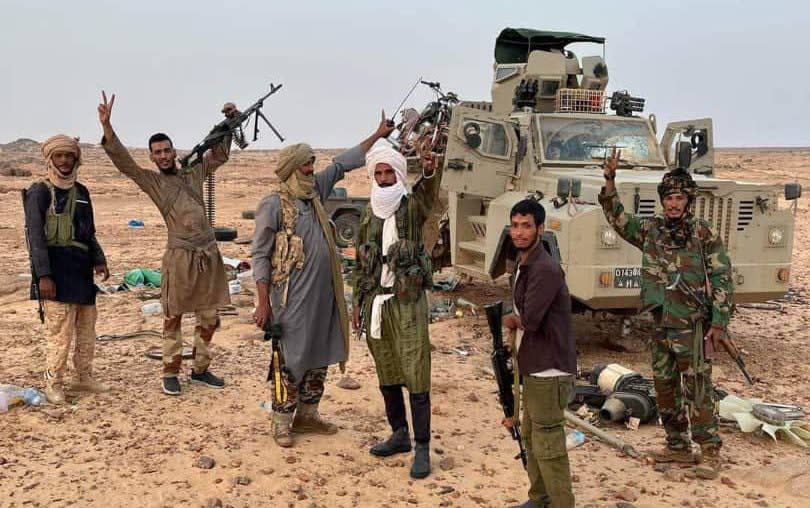Dozens of Wagner Fighters Killed and Russian Helicopter Destroyed in Mali Ambush
In a devastating ambush in Mali, dozens of Wagner mercenaries were killed, and a Russian helicopter was destroyed by al-Qaeda-allied rebels. The attack, which took place near the desert town of Tinzawatene on the border with Algeria, has raised significant concerns about the effectiveness and safety of Russian mercenary operations in the region.
The Attack
The ambush was claimed by Jama’at Nusrat al-Islam wal-Muslimeen (JNIM), an al-Qaeda-linked group. Reports indicate that the militants employed powerful improvised explosive devices (IEDs) to halt the Wagner convoy, resulting in the deaths of approximately 50 Wagner fighters and 10 Malian soldiers. Eyewitness accounts and footage shared on social media depict a grim scene, with bodies in camouflage uniforms scattered across the desert sand, some adorned with Orthodox crosses.
Casualties and Key Figures
Among the casualties was Nikita Fedyanin, the editor and owner of the Grey Zone Wagner Telegram channel, known for his role as a Kremlin propagandist. Fedyanin had been traveling with the convoy and was reportedly killed during the ambush. His last message on the Grey Zone featured photographs of Wagner fighters, highlighting the challenges of operating in the harsh African environment.
Aftermath and Reactions
Footage from the scene shows the wreckage of a helicopter lying among the ruins of mud houses, while Tuareg fighters celebrated their victory. A rebel commander even taunted the situation, offering to send Wagner prisoners to Ukraine to aid in its fight for justice and freedom. This incident underscores the growing tensions and complexities of the conflict in Mali, where Wagner forces have been deployed since 2020 to support a military junta.
Strategic Implications
The Kremlin's involvement in Africa has been a longstanding strategy to bolster its influence and challenge Western dominance, particularly following its invasion of Ukraine in 2022. The recent ambush highlights the vulnerabilities of Wagner forces, especially as many experienced fighters have left the group since a rebellion in 2023, leading to a decline in operational effectiveness.
Anastasia Kashevarova, a military blogger and supporter of Wagner, noted that the poorly equipped convoy was lured into the ambush by a small group of rebel fighters. She emphasized that the number of attackers significantly outnumbered the Wagner fighters, resulting in catastrophic losses.
Conclusion
The ambush in Mali serves as a stark reminder of the dangers faced by mercenary forces operating in volatile regions. As the Kremlin continues to leverage its military presence in Africa, the effectiveness and safety of its operations remain in question, particularly in light of recent events that have exposed the vulnerabilities of its mercenary units.
